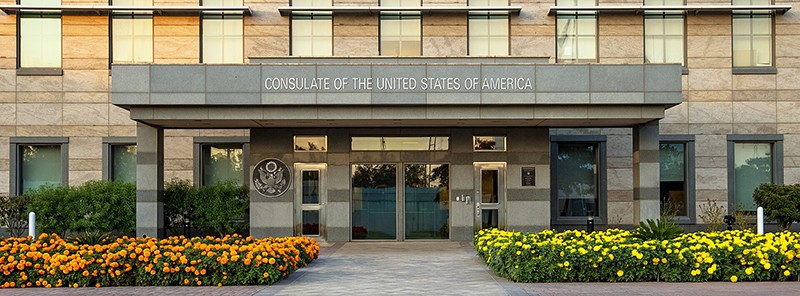Sacred Love or Brutal Hatred: The Paradox of Faith
Sacred Love or Brutal Hatred: The Paradox of Faith
By: SALIL GEWALI
If God exists as the supreme force behind this amazing creation, why do humans try to confine the infinite within the walls of bigotry and animosity? Our history is littered with the rubble of temples burned, mosques desecrated, and churches, Gurudwaras, and Stupas demolished in the name of God. Recent acts of mindless violence in Bangladesh, including the destruction of countless temples and the heartless killing of innocent Hindus, are a pointer to this reality. This is how some extremists exploit the divine as an excuse to unleash brutality upon those who simply approach God in slightly different ways. Is this not, at its core, a rejection of the very concept of God and His all-encompassing nature?
A troubling question arises: Why is devotion to " my God " so commonly linked to hatred of " your Gods”. The irony is painfully evident. If God—by whatever name or form of worship—is the ultimate source of all life, how can anyone justify dividing His creation into warring factions? This obsession with differences in names, rituals, and customs has only led to bloodshed, trauma, and suffering—things no deity would ever condone. Hatred in the name of “love for God” is not faith at all; killing in the name of protecting religion is utterly ungodly.
Driven by excessive hatred, some have convinced themselves that loving God grants them the right to hate others' deities or ridicule the paths they follow. This mindset stems from sheer ignorance—particularly the assumption that different faiths worship entirely different gods or creators. If this were true, wouldn’t our very biology vary based on religion? Should a Muslim’s blood flow differently than a Hindu’s? Should a Christian’s heart beat to a rhythm entirely distinct from a Buddhist’s?
If the universe operates under one set of natural laws—universal, consistent, and impartial—why do we insist on claiming, “My God is the most powerful,” while dismissing others’ gods as inferior—or worse, as Satan?
Let’s consider this: gravity doesn’t ask about your beliefs before pulling you to the ground. Air doesn’t question your faith before entering your lungs to sustain and nourish your life. The sun doesn’t shine only for Hindus, nor do the rains fall exclusively for Muslims or Buddhists. What if the speed of light changed depending on whether one was Jewish or Muslim?
It is utterly absurd to believe that the same God who masterfully designed endless galaxies, black holes, and the laws of motion would occupy Himself with petty favoritism or trivial divisions among humanity. The universe intrinsically operates with perfect consistency, impartiality, and awe-inspiring generosity. Shouldn’t our concept of God reflect this same boundless benevolence—encouraging us to cherish the world around us and live in harmony with one another?
At the heart of every religion lies a “call to compassion”. God, in any form and energy, is usually approached through the act of feeding the hungry, serving the needy, spreading the virtue of compassion than in building walls of division. The divine, if it exists, is surely too vast to be confined by the smallness of human ego and narrow dogmas.
The greatest irony of all is that we claim to worship God, yet our actions so completely go against the very essence of what God represents and His expectations. We seem to miss the serene forest for the trees, focusing literally on petty trivialities while overlooking the vast shared essence of humanity.
I sometimes feel, if God were to descend today in flesh, perhaps His first question to us would be: "Why do you spend so much time defending Me and so little time embodying the love, compassion, and unity I have woven into every fiber of creation?" Perhaps God would go on to say further: " Bury your divisions, bury your dogmas, and abandon your bloody battles over who knows Me best. Love one another, serve one another, and I promise you eternal peace and eternal life in the hereafter."
About Author: A Shillong-based writer and researcher, Salil Gewali is best known for his research-based work entitled ‘Great Minds on India’, that has earned worldwide appreciation. Translated into fifteen languages, his book has been edited by a former NASA scientist – Dr. AV Murali of Houston, USA. Gewali is also a member of the International Human Rights Commission, Zürich, Switzerland.
More information on WIKIPEDIA: https://en.wikipedia.org/wiki/Salil_Gewali
NEH Report
Senior Staff Reporter at Northeast Herald, covering news from Tripura and Northeast India.
Related Articles

Can BNP’s Tarique Rahman regime in Dhaka turn friendly to India !
Can BNP’s Tarique Rahman regime in Dhaka turn friendly to India !

Greed for Coal Killed mine Labourers and Devastated the Environment
Greed for Coal Killed mine Labourers and Devastated the Environment

Iran, Where Humanity and Freedom Burn Together
Iran, Where Humanity and Freedom Burn Together

Donald Trump’s Brutal Assault on The Sovereignty of Venezuela
Donald Trump’s Brutal Assault on The Sovereignty of Venezuela
Latest News

Evil Dead actor Bruce Campbell says his cancer is ‘treatable, not curable’ in emotional post

Nick Jonas shares romantic Holi throwback with Priyanka Chopra

Iranian ship sinks close to Sri Lanka following 'submarine' attack: Reports

US orders non-essential staff to leave Karachi, Lahore consulates days after violent protests

